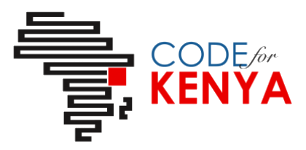•The stations are crucial in these areas to help reduce the risk of spreading Covid-19, since many households do not have access to soap and water at home.
In the two months since Covid-19 was first reported in Kenya, hand washing has become one of the most important steps towards stopping the spread of the virus.
With schools in Kenya closed, close to 18 million students are staying at home, more than half of them from poor backgrounds. They include children in urban slums, or informal settlements, who have very limited access to water and sanitation.
One of these children is nine-year-old Precious, who lives in Mathare informal settlement in Nairobi. Despite her poor background, Precious is clearly very bright and speaks fluent English. Together with her mother Mary, 32, she watches lessons on TV in the tiny iron-roofed house she shares with her family of five.
“I use the TV and my mum’s phone to learn. I write the lessons on my notebook and my mother guides me when I get stuck,” Precious says.
In response to the lack of water and sanitation in informal settlements, Unicef has installed over 1,000 hand washing stations in places like Mathare, using funds provided by UK Aid and in coordination with Nairobi City Government.
Hand washing stations are crucial in these areas to help reduce the risk of spreading Covid-19, since many households do not have access to soap and water at home.
British High Commissioner to Kenya, Jane Marriott, comments: “Covid-19 presents a huge risk to Kenya’s most vulnerable, including refugees and the urban poor – both directly and through the indirect economic impacts.
The UK is alive to these dangers and is funding Unicef to provide support to the counties most affected by delivering much needed water, sanitation and hygiene supplies.”
As part of the government’s response to Covid-19, a curfew has been imposed from 9pm to 4am. As a roadside food vendor, Mary’s business has been hit hard, since most of her customers used to come in the evenings after work.
Despite the challenges facing people living in Mathare, Mary is optimistic that they will come out of the pandemic stronger. She continues to encourage her children and neighbours to wash their hands and take other measures such as mask wearing and physical distancing to stay safe and healthy.
"These Unicef's handwashing stations are very helpful,” Mary says. “They have running water and soap and are placed in strategic places for our children and the public to wash their hands. Because my business has been affected by the pandemic, I am not able to buy the necessary sanitation equipment for my family."
Another child living in Mathare is 10-year-old Brian Mose. He lives with his mother Gladys Nyaduko, 33, and three other children. Like Mary, Gladys has had to become her children’s teacher in her one room house.
She has adjusted her work schedule in order to be at home during lesson time. “With the help of lessons aired on TV and radio, I am able to monitor my children’s school-work and give them guidance when necessary,” says Gladys. “The school sent Brian’s final exam to my phone. After he completed it, I submitted it for marking and grading.”
Brian has also been learning how to protect himself from Covid-19 from Gladys. ‘’My Mum told me to be careful when playing with my friends, always wash my hands and wear a mask outside,” Brian says.
Hand washing with soap remains one of the most effective and cost-effective means of preventing Covid-19, as well as other infectious diseases affecting children. With funding from UK Aid and others, Unicef is procuring and distributing hygiene and prevention items, including soap, hand-sanitiser, face masks, hand-washing stations and disinfectant for use in communities, schools, health facilities and public spaces.
For families like Precious and Brian’s, this support is making all the difference in terms of keeping them safe from Covid-19. “In our community, there are now Unicef handwashing stations,” Precious says. “After we finish playing, we go and wash our hands there with soap and clean water. My mum has told me to always wash my hands, avoid going to crowded places and always wear a mask to avoid getting or spreading the virus."
Most Popular
Help Lines
Kenya Police:
(053801053)Kenya Medical Board:
(+254 20 2724938)Ministry of Health:
(+254 20 2717077)Nursing Council of Kenya:
(+254 20 3873556)